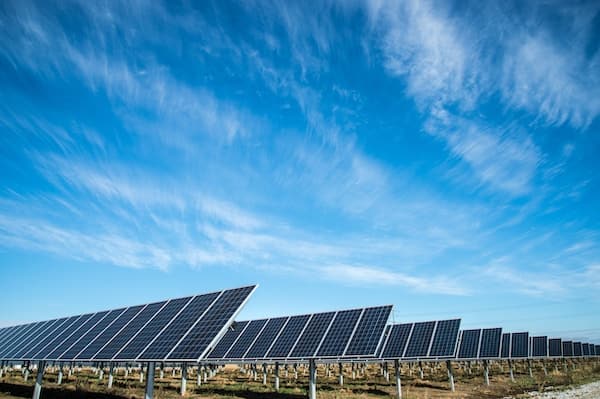Finance
Why Investing in a Solar Panel Program is a Smart Financial Choice
Solar energy is a green option that reduces carbon emissions and electricity costs. It can be an intelligent investment for homeowners and businesses alike.
However, doing your research before making any significant investments is essential. Factors affecting ROI include wattage, upfront costs, energy savings, and other incentives.
Incentives
Many state governments, local utilities, and private organizations offer solar incentives to make going solar more affordable for their residents. Whether in the form of rebates, tax benefits, or performance-based incentives (also known as PBIs), these programs can significantly reduce the cost of going solar.
The most crucial incentive available to residential homeowners is the federal tax credit, which reduces your annual IRS liability by up to 30 percent of the total cost of your solar panel system. This is a huge benefit and can dramatically speed up the payback period for your investment.
Other states also offer additional state tax credits that work like the federal ITC but are applied to your state taxes. Additionally, some states allow their residents to purchase their solar panels with zero sales tax, which can be a significant savings.
Commercial and industrial businesses can also find attractive New Jersey solar incentives for going solar, including direct rebates, tax credits, or unique bill credit programs like net energy metering and California’s PV PBI (Performance-Based Incentives). Plus, green credentials can increase your customer base and give you a competitive edge when bidding for new business.
Energy Savings
Aside from the environmental benefits, one of the primary reasons homeowners choose to go solar is for energy savings. By generating some electricity on site, homeowners reduce their need to pull power from the electricity grid and pay higher rates from their utility provider.
Depending on where you live and your energy usage, you can generate enough energy to offset most of your monthly power bill or even save money by using less power during peak hours (when electricity demand is highest). Additionally, some states offer a “solar garden” program where households join and share a solar array to receive community benefits like upfront rebates and net metering credits.
Additionally, many homeowners invest in a battery energy storage system to maximize their home’s solar power production and reduce their electricity bills. This, paired with an intelligent monitoring system, allows you to optimize your usage, reducing peak-hour power consumption and taking advantage of the low cost of electricity during off-peak times.
Longevity
While the upfront cost of a solar panel system can be a drawback for some, most systems will continue to function well for 25 years or more. However, energy production may decrease over time due to degradation or natural wear and tear.
A home’s value can increase significantly with the addition of solar panels, depending on the location and whether the homeowner installs a battery to store excess energy and help offset peak demand times. Many real estate agents report homes with solar energy installations to sell faster than those without.
While the most prominent financial benefit of going solar is saving money on monthly electricity bills, the environmental benefits are also worth considering. By reducing carbon emissions, your solar energy system can contribute to a healthier, more sustainable future for future generations. Several solar financing options exist for those concerned with the initial investment, such as a solar lease or PPA. The right solution fits your situation and goals. Learn more about your options by getting a free, personalized solar quote from EnergySage.
Tax Credits
Depending on where you live, multiple tax credits are available to help reduce the upfront cost of solar energy. These include the Federal Solar Investment Tax Credit (ITC), state and local rebates, SRECs, and Performance-Based Incentives.
The ITC is worth 30% of your system’s costs, including parts and contractor fees. You must own your system to claim this incentive, so we recommend avoiding solar leasing whenever possible.
If you are lucky enough to live in an area with net metering, the excess electricity your solar panels produce will be returned to the grid. This will lower your electricity bills and shorten your payback period even further. Similarly, many states have programs that give you credit on your utility bill when you produce more electricity than you use. This is called “zero-energy billing,” it’s a great way to save money on your electric bills.
Maintenance
Solar panels do a great job of protecting your roof, and they are designed to endure heavy rains. They also withstand wind and storms, even hurricanes, with minor damage. Like any home technology, however, solar panels have a limited life expectancy and need regular maintenance to ensure continued performance.
Cleaning your system is simple and can usually be completed with a garden hose or leaf blower. Your solar company will provide specific instructions for panel-specific maintenance. Generally speaking, you should plan on two to four maintenance visits each year, depending on the season.
In addition to cleaning, your panel’s racking and inverters will need to be replaced after a certain amount of time. This is why choosing a trusted solar installer with a solid track record is essential. Additionally, many companies offer installation warranties in addition to the manufacturer’s warranty. This ensures our customers’ systems are covered above and beyond the equipment manufacturers’ warranties, keeping their energy-efficient investment working for decades.
Related Posts






![[pii_email_9adeb2eb81f173c673a5] Error Code Fix](https://cufftech.com/wp-content/uploads/2020/10/email-1975010_640-150x150.png)





